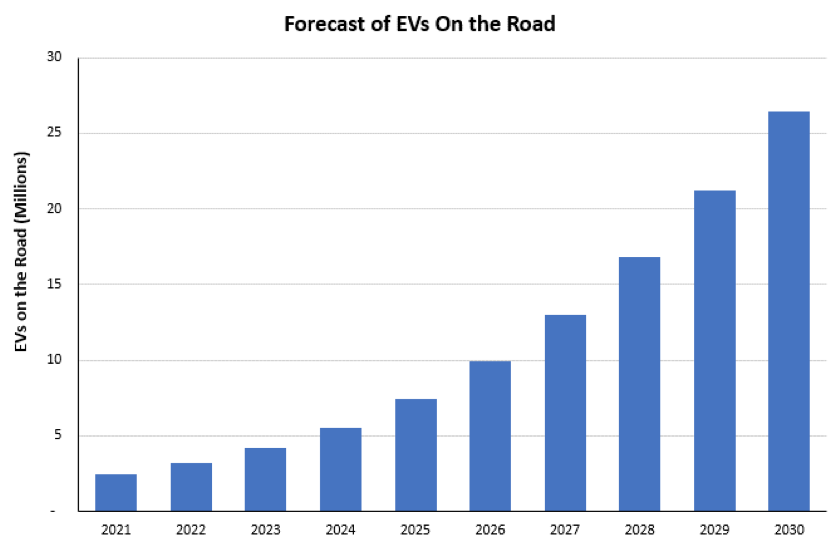Electric Vehicles Continue Growing Their Numbers on the US Market

Try TrafficZoom’s AADT metrics today with a free trial
Get instant access nowThe market for electric vehicles (EV) in the US, for a few years dominated exclusively by Tesla, begins to see diversification of brands and models. Both traditional car manufacturers, like Ford and Hyundai, and new brands, like Lucid and Rivian, attract the US buyers’ attention in increasing numbers. Add to it the gas price spike, reaching unheard-of levels of $7+ per gallon, and it is clear to see that EV market has just one direction to go, and it is up.In dollar value, the U.S. electric vehicle market was $28.24 billion in 2021 and it is projected to grow to $137.43 billion in 2028. In absolute numbers, the global EV sales increased by 40-45%, while in the US the number is about 4%. Obviously, there’s a lot of room to grow, and a lot will depend on success in developing the domestic EV charging infrastructure.

Even though charging at home is widespread in. the US, the general perception links higher acceptance of EVs to greater availability of public charging outlets. Currently, in ten US cities with the highest EV charger density, there are on average 935 public chargers per million population. At the same time, many areas of the country currently lack sufficient EV charging networks. The Infrastructure Act of November 15, 2021, includes $5 Billion in funding to strategically deploy electric vehicle charging infrastructure and to establish an interconnected network to facilitate data collection, access, and reliability. Simply put, the goal is to make EV charging easier, faster, and more accessible.As there are many parties interested in getting hold of the government money, it is especially important for the EV charger companies to access the pertinent information required for support of their EV charger deployment strategies, to increase their chances of winning the bid for a government grant, and prove to the private investors the solid economic fundamentals of their proposals.
Ticon supports the development of EV charger networks with our latest product, ChargEV – a multifactor report that provides focused AI-supported statistical analysis forEV density, EV charger density, and demographics in the area surrounding the site of interest, in addition to detailed and highly reliable traffic data.
We can custom tailor the report to any area or chain of interest, from state to several counties to a single intersection, and if requested, can cover the historic data for multiple years.
Contact us for detailed information about the range and depth of data we provide to EV charger industry.














